Dialysis Stakeholder Workshop 2018
Workshop Overview
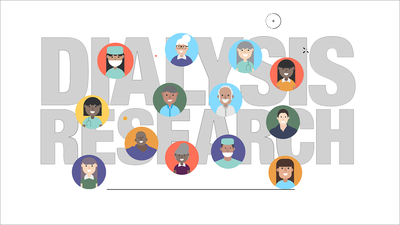
In May 2018, Dr. Flythe and her research team convened a PCORI-sponsored national workshop for dialysis stakeholders entitled, Building Research Capacity in the Dialysis Community at the Local Level. The workshop was the first of its kind to focus on the research capacity of local dialysis clinics. Workshop sessions facilitated discussion of the benefits and realities of incorporating research into routine dialysis care delivery. Participants collaboratively identified facilitators of and barriers to research performance in local dialysis clinics. The workshop brought together stakeholders from many positions in the dialysis delivery system including patients, care partners, clinic staff members, medical providers, corporate dialysis organization representatives, and researchers. The workshop was held on May 9-10, 2018 at the Sheraton Imperial Hotel and Convention Center in Durham, North Carolina.
Workshop Reflections From a Patient Stakeholder
David White, a kidney transplant recipient and former in-center hemodialysis patient, reflected on his experience and lessons learned during the workshop in his article, “Reflections on my Experience at the Building Research Capacity in the Dialysis Community at the Local Level Workshop” (National Kidney Foundation, July 2, 2018).
Executive Summary
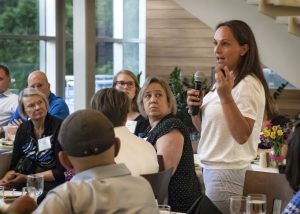
This report summarizes findings from the PCORI-funded workshop, “Building Research Capacity in the Dialysis Community at the Local Level,” held in Durham, NC May 9-10, 2018. The workshop included over 70 diverse dialysis stakeholders (patients, care partners, dialysis clinic personnel, medical providers, corporate dialysis organization representatives, researchers, and other stakeholders). The stakeholders came together to: 1) discuss facilitators and barriers to research facilitation and conduction in the dialysis setting, and 2) identify opportunities for improving the research capacity of dialysis clinics.
Key Findings
Barriers to Research Readiness in Dialysis Clinics
Participants noted several barriers to research implementation related to current research culture and processes in dialysis clinics that impede research readiness.
Cultural barriers
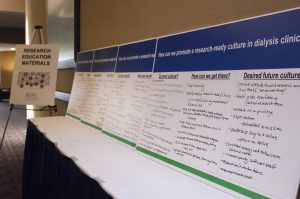
- Limited study relevance due to misaligned researcher and patient priorities;
- Mistrust of research and researchers among patients and clinic personnel;
- Lack of enthusiasm for research among clinic personnel;
- Lack of research education and training for clinic personnel;
- Absence of clearly articulated or tangible incentives for dialysis organizations and clinics to participate in research; and
- Lack of ongoing communication between research teams, clinics, and patients, including dissemination of study updates and results.
Procedural barriers
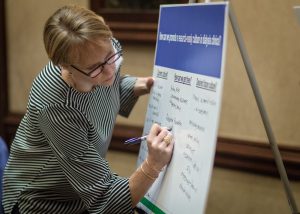
- Competing demands for clinic personnel time, including regulatory requirements for care delivery (the primary mission of a dialysis clinic);
- Failure to engage patients and clinics in study design to assess importance, relevance, interest, and potential impact;
- Failure to design research protocols that minimize the impact of research participation on dialysis clinic care processes and patients’ lives;
- Lack of a clear pathway for researchers to collaborate with dialysis organizations and clinics in the development of research protocols;
- Lack of researcher understanding and consideration of regulations that dialysis clinics must follow during study design and implementation;
- Misalignment between the research protocols and expectations, and the day-to-day realities of operating a dialysis clinic; and
- Lack of iterative feedback on study results or follow-up information from researchers.
Promising Opportunities for Overcoming Barriers and Promoting Research Readiness in Dialysis Clinics
Stakeholders identified the following key opportunities for interdisciplinary and patient-centered efforts to improve research culture and processes in dialysis clinics:
Improving Culture

- Providing ongoing educational training and resources for patients and clinic personnel delivered in multiple formats, using plain language;
- Increasing awareness of corporate policies and procedures regarding research conduct within dialysis clinics; and
- Identifying a “champion” at each level – patient, dialysis clinic, dialysis organization, researcher, etc. – to create buy-in, engage patients and personnel, and share information.
Improving Processes
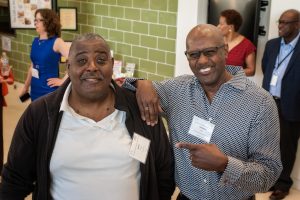
- Seamlessly integrating research within the existing treatment environment by designing study implementation processes that reduce burden on clinic personnel and patients;
- Providing regular and timely updates on research project progress to clinic personnel and patients to maintain momentum and engagement;
- Engaging multiple stakeholders early during study design to ensure acceptability, feasibility, and relevance;
- Developing a unifying set of broad guidelines and best practices for research design and implementation in dialysis clinics; and
- Enhancing communication to strengthen relationships between dialysis organizations, clinics, researchers, and patients.
Conclusions
Improving research readiness and capacity in the dialysis setting requires an overarching strategic vision that bridges silos and fosters interdisciplinary partnerships. This workshop was the first of its kind, to our knowledge, to bring such a diverse group of stakeholders together to discuss barriers throughout the research process, and collaboratively identify specific, actionable, and feasible solutions for addressing them. This workshop represents a necessary first step toward advancing dialysis research capacity with the ultimate goal of improving clinical outcomes and patient experiences among individuals receiving dialysis.
Next Steps
- Develop a manuscript summarizing complete workshop findings;
- Develop a project proposal focused on dialysis research best practices and standardized research tools for the Kidney Health Initiative; and
- Collaborate with dialysis provider organizations to: a) develop a better understanding of the relationship between researchers and providers and b) create a formal means of communication with the goal of facilitating the conduct of research in dialysis clinics.
Thank You
Thank you to all the workshop participants for your time and active participation. Your valuable contributions have started an important conversation about improving research readiness and capacity in the dialysis community.
2018 Dialysis Research Meeting from UNC Kidney Center on Vimeo.
Workshop Materials
- Building Research Capacity
- Research Concepts and Terms
- IRBs Contracting Legal Issues
- Engaging Patients in Research
- Clinic Personnel and Research Readiness
- Research QI Job Duties Handout
- Research Words and Definitions
 Contact Us
Contact Us
Jenny Flythe, MD, MPH
UNC Kidney Center
7024-Burnett Womack CB #7155
Chapel Hill, NC 27599-7155
jflythe@med.unc.edu
Julia Narendra, MPH
919-445-2686
julia_narendra@med.unc.edu